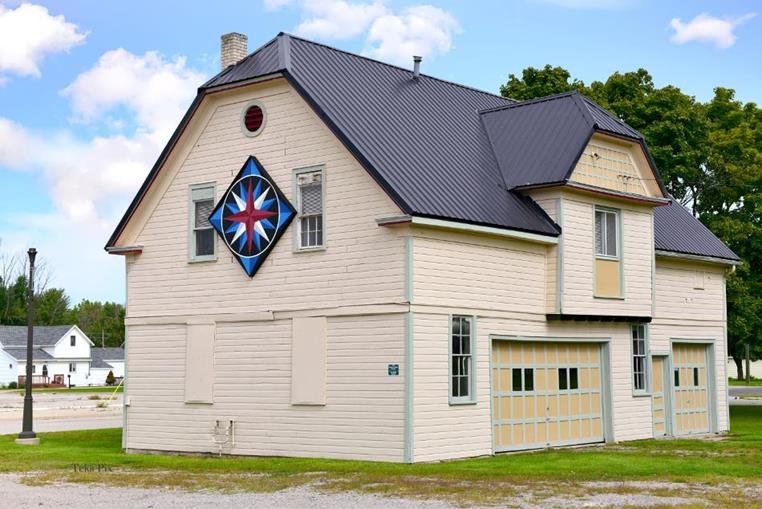Old Sebewaing Township Hall
Originally the building was used for many things: court/jury trials, Methodist, Episcopal, Moravian church services, a jail with 2 cells, Charlie Tredup's police office, and a voting place. One side housed a fire engine, meetings, Arbeiter Society, English Baptist congregation, and Tuesday night practice for the Sebewaing Band. In later years Immanuel Church held a rummage sale there. Boy and Girl Scout troops held meetings on the main floor and Jaycee and Jaycettes held meetings on the second floor.
Luckhard Museum
The Luckhard Museum is a mission that was built for teaching the gospel to the American Indians in 1845. It houses pioneer & Indian relics.
The Indian Mission
On July 1, 1845, three Lutheran missionaries, Reverend Johann J. F. Auch, Reverend J. Simon Dumser, and Reverend George Sinke, arrived to evangelize the Chippewa Indians. A log chapel was built here later that summer.
Sebewaing Township Hall
Sebewaing Township was organized in 1853. In 1877 the board resolved to use “liquor money” to build this township hall. The atypical two-story town hall included voting booths, a courtroom, a jury room, a jail, and a meeting hall.
John C. Liken/John C. Martini House
One of Sebewaing’s most prominent citizens, John C. Liken (1832-1920) came here in 1865 from New York State lured by Michigan’s bountiful forests, he opened stave and sawmills in Sebewaing, Unionville, Akron, and Fairgrove. His firm, John C. Liken and Company, dealt in a variety of commodities that the company’s fleet of ships transported to Bay City and markets in New York.
Charles W. Liken House
In 2006 the home became available just ahead of the wrecking ball. The Sebewaing Area Historical Society took on the restoration of the home. The woodwork, light fixtures, and hardwood floors are original and in great condition.





